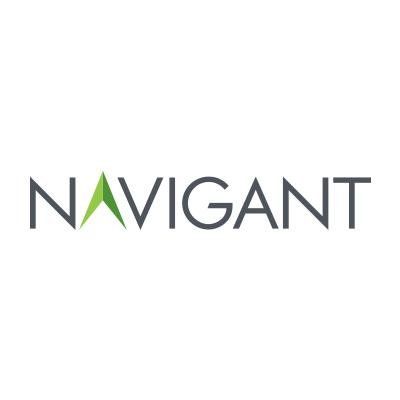预约演示
更新于:2026-02-05

Lexicon Pharmaceuticals, Inc.
更新于:2026-02-05
概览
标签
心血管疾病
内分泌与代谢疾病
泌尿生殖系统疾病
小分子化药
基因疗法
疾病领域得分
一眼洞穿机构专注的疾病领域
暂无数据
技术平台
公司药物应用最多的技术
暂无数据
靶点
公司最常开发的靶点
暂无数据
| 排名前五的药物类型 | 数量 |
|---|---|
| 小分子化药 | 4 |
| 基因疗法 | 1 |
关联
5
项与 Lexicon Pharmaceuticals, Inc. 相关的药物靶点 |
作用机制 AAK1抑制剂 |
在研适应症 |
非在研适应症 |
最高研发阶段临床2期 |
首次获批国家/地区- |
首次获批日期- |
靶点 |
作用机制 ACSL5 inhibitors |
在研适应症 |
非在研适应症- |
最高研发阶段临床前 |
首次获批国家/地区- |
首次获批日期- |
69
项与 Lexicon Pharmaceuticals, Inc. 相关的临床试验NCT07211802
Utilizing Continuous Ketone Monitors to Enable Safe Use of SGLT Inhibitors in Patients With Type 1 Diabetes
This research study is being conducted to learn if wearing a combination continuous glucose monitor/continuous ketone monitor (CGM/CKM) can reduce the side effects of taking sotagliflozin (study drug) in people with type 1 diabetes.
开始日期2026-07-01 |
申办/合作机构 |
NCT06933056
Comparison of Antiplatelet Effects of Sotagliflozin to FDA-approved Antiplatelet Drugs: an Interventional Study
This study will identify the potential benefits of regulating platelet activation with sotagliflozin compared to other FDA-approved drugs known to limit platelet activation.
开始日期2025-09-02 |
申办/合作机构 |
NCT06435156
A Phase 2 Double-blind Randomised Controlled Trial Studying the Effect of Sotagliflozin Versus Placebo in Individuals With Heart Failure and Type 1 Diabetes.
People with type 1 diabetes sometimes develop heart failure which can cause symptoms like breathlessness, tiredness or ankle swelling, reduced quality of life and lead to being admitted to hospital or suffering potential fatal consequences. This trial is investigating if a tablet called sotagliflozin, can improve quality of life in people with type 1 diabetes and heart failure. In addition, this trial will also assess the safety and tolerability of sotagliflozin in this population.
In previous trials that included people with type 2 diabetes and heart failure sotagliflozin was shown to improve patients' symptoms of heart failure, quality of life and reduce the chance of people with heart failure being admitted to hospital or dying. However, people with type 1 diabetes and heart failure were not included in these trials meaning that it is not known if these benefits also apply to this population.
This trial aims to recruit 320 people with type 1 diabetes and heart failure symptoms in multiple sites in the United Kingdom (UK). This trial will compare the health and quality of life of participants who take sotagliflozin tablets with participants who take placebo tablets, which is a dummy tablet that looks the same as sotagliflozin. Participants will be randomly allocated to one of two groups (i.e. one taking sotagliflozin and the other the placebo) and both the medical team and participants will not know in which group each participant is until the end of the study. Participants will be in the trial for approximately 6 months and will be given sotagliflozin or placebo tablets to take 1 per day for 4 months. The trial is expected to run for a total of 26 months.
In previous trials that included people with type 2 diabetes and heart failure sotagliflozin was shown to improve patients' symptoms of heart failure, quality of life and reduce the chance of people with heart failure being admitted to hospital or dying. However, people with type 1 diabetes and heart failure were not included in these trials meaning that it is not known if these benefits also apply to this population.
This trial aims to recruit 320 people with type 1 diabetes and heart failure symptoms in multiple sites in the United Kingdom (UK). This trial will compare the health and quality of life of participants who take sotagliflozin tablets with participants who take placebo tablets, which is a dummy tablet that looks the same as sotagliflozin. Participants will be randomly allocated to one of two groups (i.e. one taking sotagliflozin and the other the placebo) and both the medical team and participants will not know in which group each participant is until the end of the study. Participants will be in the trial for approximately 6 months and will be given sotagliflozin or placebo tablets to take 1 per day for 4 months. The trial is expected to run for a total of 26 months.
开始日期2025-01-28 |
申办/合作机构  University Of Dundee University Of Dundee [+2] |
100 项与 Lexicon Pharmaceuticals, Inc. 相关的临床结果
登录后查看更多信息
0 项与 Lexicon Pharmaceuticals, Inc. 相关的专利(医药)
登录后查看更多信息
218
项与 Lexicon Pharmaceuticals, Inc. 相关的文献(医药)2026-02-01·DIABETES OBESITY & METABOLISM
Impact of sotagliflozin on glomerular hyperfiltration in people with type 1 diabetes: A post hoc analysis of the
inTandem3
trial
Letter
作者: Davies, Michael J. ; Pathak, Amrit ; Hardin, M. Belinda ; Horton, William B. ; Girard, Manon
2025-12-01·JOURNAL OF THE AMERICAN SOCIETY OF NEPHROLOGY
Authors' Reply: Further Considerations on the Clinical Evaluation of Sotagliflozin in Type 1 Diabetes with CKD
Article
作者: Odutayo, Ayodele ; Davies, Michael J. ; Cherney, David Z.I. ; Sridhar, Vikas S.
2025-07-01·Journal of Managed Care & Specialty Pharmacy
Cost-effectiveness analysis model for sotagliflozin compared with insulin monotherapy for patients with type 1 diabetes and chronic kidney disease
Article
作者: Marin, Moises ; Kim, Jaehong ; Shafrin, Jason ; Anderson, Mariam ; Sikirica, Slaven ; Wang, Shanshan
BACKGROUND:
Patients with type 1 diabetes (T1D) have a greater than 50% lifetime risk of developing comorbid chronic kidney disease (CKD). Glycemic control can reduce diabetes-related complications and slow CKD progression. Adding sotagliflozin to insulin therapy reduced A1c by 0.46% compared with insulin monotherapy in patients with T1D. However, the long-term economic value for patients with both T1D and CKD remains unknown.
OBJECTIVE:
To evaluate the cost-effectiveness of sotagliflozin as an add-on to insulin in patients with T1D and CKD from a US payer perspective.
METHODS:
A Markov model was generated for individuals diagnosed with both T1D and comorbid CKD stage 3 from a US payer's perspective. Clinical and economic outcomes were assessed over 30 years and included number of patients prevented from dialysis and transplantation, life-years, quality-adjusted life-year (QALY) gains, incremental costs, incremental cost-effectiveness ratio (ICER), and net monetary benefit. Dynamic pricing, through genericization, was incorporated to account for the economic impacts of market entry by generics.
RESULTS:
Sotagliflozin add-on therapy improved survival, extending life expectancy by 1.27 years (13.08 with sotagliflozin vs 11.81 with insulin monotherapy). During the first 10 years after treatment initiation, dialysis and transplant utilization decreased by 3.06 (99.35 vs 102.41) and 1.73 (30.59 vs 32.32) per 1,000 patients, respectively. QALYs per patient increased by 0.63 (7.70 vs 7.07), largely driven by prolonged time in pre-end-stage renal disease health states (0.59; 6.75 vs 6.16). Total costs rose by $72,914 ($484,674 vs $411,760), primarily because of pharmacy costs increasing by $69,060 ($96,242 vs $27,364). The ICER was $115,677 per QALY and the model was most sensitive to pharmacy costs.
CONCLUSIONS:
Sotagliflozin is a cost-effective adjunct to insulin therapy for T1D and CKD patients, providing clinical benefits and falling below the $150,000/QALY willingness-to-pay threshold in 59% of probabilistic sensitivity analysis simulations.
272
项与 Lexicon Pharmaceuticals, Inc. 相关的新闻(医药)2026-02-01
Chief Business Officer Dr. Rob Burgess Shares How Sino Biological Is Empowering Global Biomedical Research Through Precision, Quality, and Innovation in an Exclusive Segment on Fox Business Network airing on February 1, 2026 at 4:30pm EST
Chicago, IL – January 26, 2026
–
Sino Biological US, Inc.
, a global leader in recombinant proteins, antibodies, and CRO services, will be featured on
Inside Business Today
, hosted by
Bill Rancic
and
Giuliana Rancic
. The segment, titled “Pioneering Life Sciences with High-Quality Bioreagents,” explores how Sino Biological is advancing biomedical research and drug discovery worldwide. The feature airs on
Fox Business Network
.
During the in-studio interview, Dr.
Rob Burgess
, Chief Business Officer, discusses how Sino Biological’s commitment to consistency, reliability, and scientific excellence has positioned the company as a trusted partner for researchers across academia, biotechnology, and pharmaceutical development.
Founded in 2007 by Dr. Liangzhi Xie—whose vision was influenced by his work with the late Dr. Daniel Wang at MIT—Sino Biological was created to solve a critical problem in life sciences research: inconsistent and low-quality reagents that hinder progress and compromise results. From its inception, the company set out to become a dependable, end-to-end resource for researchers tackling the world’s most complex biological challenges.
Today, Sino Biological offers a catalog of more than 8,000 recombinant proteins and 14,000 antibodies, including its industry-leading ProVir® viral antigen bank, supporting research in infectious diseases, oncology, immunology, neuroscience, and beyond. The company’s proprietary HPLC-based quality verification and ISO-certified facilities ensure lot-to-lot consistency—earning trust from scientists in more than 90 countries.
A key focus of the segment is Sino Biological’s ProPure™ line of ultra-pure, endotoxin-free recombinant proteins, produced at its state-of-the-art Houston Center for Bioprocessing. Designed specifically to support cell and gene therapy research, ProPure™ products meet the rigorous demands of translational science and advanced therapeutic development.
Viewers will also learn how Sino Biological’s acquisition of
SignalChem Biotech
in Canada expanded its offerings to include high-quality active enzymes—further strengthening its position as a one-stop shop for life sciences research.
Dr. Burgess brings more than 30 years of biotechnology leadership, including senior roles at
Lexicon Pharmaceuticals
and
Stem Cell Sciences
, helping guide Sino Biological’s mission to deliver reliable, scalable solutions for global research teams. Under his leadership, the company continues to invest in innovative platforms such as cell-free expression systems and SwiftStain™ pH-sensitive antibody dyes—tools designed to accelerate discovery and improve experimental precision.
With a workforce of more than 1,000 research staff worldwide, Sino Biological maintains a startup-driven culture focused on speed, scientific rigor, and responsiveness to global health challenges. Its expansion in North America, highlighted by the transformation of its Houston facility, reflects a long-term commitment to supporting U.S.-based research and biomanufacturing.
“Sino Biological plays a vital role in advancing global health by giving scientists the tools they need to innovate with confidence,” said Bill and Giuliana Rancic. “Their dedication to quality and reliability truly sets them apart in the life sciences industry.”
“We’re proud to feature Sino Biological on Inside Business Today,” said Gila Stern, Vice President of Production. “Their work behind the scenes is instrumental to breakthroughs in medicine, diagnostics, and vaccine development worldwide.”
Viewers can tune in to
Inside Business Today
on
Fox Business Network
on
February 1, 2026, at 4:30 PM EST
to learn more about how Sino Biological is shaping the future of life sciences research.
For more information, visit
.
About Sino Biological
Founded in 2007, Sino Biological is a global biotechnology company specializing in high-quality recombinant proteins, antibodies, and CRO services. Serving researchers in over 90 countries, Sino Biological supports basic research, drug discovery, vaccine development, and diagnostics through its comprehensive product portfolio, proprietary quality systems, and innovative research platforms. Learn more at
.
About Inside Business Today
Inside Business Today
, hosted by Bill and Giuliana Rancic, is a premier business series exploring innovation, leadership, and transformative ideas across industries. Airing on Fox Business Network and Bloomberg International, the show inspires audiences with insights from visionaries driving meaningful change. Learn more at
Media Contact:
Gila Stern
gstern@btvshow.com
561-929-6536
并购高管变更
2026-01-30
Plus, news about Lexicon Pharmaceuticals, Vaxcyte, ALX Oncology, BioMarin and 2048 Ventures:
🤝 Moderna signs rare disease drug deal with Recordati:
The Italian drugmaker will
pay
Moderna $50 million upfront and up to $110 million in milestones to license mRNA-3927, a Phase 3 candidate for an inherited metabolic disorder called propionic acidemia. Moderna will continue to lead on the drug’s development, with Recordati set to take over for “global commercialization.” Leerink analysts described the pact as a “garage sale,” adding that the financial terms are underwhelming. –
Ayisha Sharma
🧠 ProMIS Neurosciences to raise up to $175M:
Proceeds from the
private placement
will help the biotech complete a Phase 1b trial of its antibody candidate for Alzheimer’s disease, called PMN310. Topline data from that study are expected in the middle of the year. The financing is set to close on Feb. 3. –
Ayisha Sharma
💰
Public offering roundup:
💵 BioMarin’s money moves:
The California-based rare disease drugmaker
priced
an $850 million senior unsecured notes offering and had updates on various loans attached to its pending $4.8 billion acquisition of
Amicus Therapeutics
.
— Kyle LaHucik
🌱 2048 Ventures raises $82M
: 2048 invests in health tech and biotech startups, among others, and counts protein profiling company Nomic and drug formulation specialist Persist in its portfolio. Its oversubscribed
third fund
will disburse seed and pre-seed rounds of between $500,000 and $3 million to similar companies. —
Elizabeth Cairns
并购临床1期临床2期临床3期
2026-01-30
THE WOODLANDS, Texas, Jan. 30, 2026 (GLOBE NEWSWIRE) -- Lexicon Pharmaceuticals, Inc. (Nasdaq: LXRX) (“
Lexicon
”) today announced the pricing of its previously announced underwritten public offering of 32,000,000 shares of its common stock, par value $0.001. The shares of common stock being offered pursuant to the public offering are being offered at a public offering price of $1.30 per share. All of the shares are being offered by Lexicon. The gross proceeds from the public offering are expected to be $41.6 million, before deducting underwriting discounts and commissions and other offering expenses. The public offering is expected to close on or about February 2, 2026, subject to the satisfaction of customary closing conditions. In addition, Lexicon has granted the underwriters a 30-day option to purchase up to an additional 4,800,000 shares of common stock at the public offering price, less underwriting discounts and commissions.
In addition to the shares being sold in the underwritten public offering, Lexicon has agreed to sell, in a concurrent private placement for expected aggregate gross proceeds of approximately $41.1 million, (i) at a price of $1.30 per share of common stock, 22,400,000 shares of its common stock and (ii) at a price of $65.00 per share of series b convertible preferred stock (the “
Series B Convertible Preferred Stock
”), 184,366 shares of Series B Convertible Preferred Stock, which will be convertible into 9,218,290 shares of common stock, to an affiliate (the “
Private Placement Purchaser
”) of Invus, L.P., Lexicon’s largest stockholder, pursuant to its preemptive right under Lexicon’s Sixth Amended and Restated Certificate of Incorporation. The Private Placement Purchaser will also have the option, pursuant to such preemptive right, to purchase up to an additional 94,855 shares of Series B Convertible Preferred Stock, which will be convertible into 4,742,744 shares of common stock, at a price of $65.00 per share of Series B Convertible Preferred Stock, to the extent the underwriters exercise their option to purchase additional shares of common stock. In addition to its purchases pursuant to its preemptive right, the Private Placement Purchaser has also agreed to purchase an additional 182,779 shares of Series B Convertible Preferred Stock, which will be convertible into 9,138,966 shares of common stock, at a price of $65.00 per share of Series B Convertible Preferred Stock, for expected additional aggregate gross proceeds of approximately $11.9 million.
The securities being offered to the Private Placement Purchaser will not be registered under the Securities Act of 1933, as amended (the “
Securities Act
”). Such issuances are also scheduled to close on or about February 2, 2026, subject to the closing of the public offering and the satisfaction of certain other customary closing conditions. The closing of the underwritten public offering is not conditioned on the closing of the concurrent private placement.
Lexicon currently intends to use the net proceeds that it will receive from the proposed offering and the concurrent private placement (i) to fund the continued research and development of its drug candidates and (ii) for working capital and other general corporate purposes.
Jefferies and Piper Sandler are acting as joint book-running managers for the public offering. H.C. Wainwright & Co. is acting as lead manager for the public offering.
A shelf registration statement on Form S-3 relating to the public offering was filed with the U.S. Securities and Exchange Commission (“
SEC
”) on August 2, 2024 and declared effective by the SEC on August 15, 2024 (File No. 333-281208). The shares of common stock proposed to be issued in the concurrent private placement have not been registered under the Securities Act, or the securities laws of any state or other jurisdiction in the United States, and may not be offered, pledged, sold, delivered or otherwise transferred, directly or indirectly, in the United States except pursuant to registration under the Securities Act or an applicable exemption from the registration requirements of the Securities Act and, in each case, in compliance with other applicable securities laws. A preliminary prospectus supplement and accompanying prospectus relating to the public offering have been filed with the SEC and are available on the SEC’s website at A final prospectus supplement and accompanying prospectus will be filed with the SEC and will also be available on the SEC’s website at When available, copies of the final prospectus supplement and accompanying prospectus may also be obtained from Jefferies LLC, Attention: Equity Syndicate Prospectus Department, 520 Madison Avenue, New York, NY 10022, by e-mail at prospectus_department@jefferies.com or by telephone at (877) 821-7388; or Piper Sandler & Co., Attention: Prospectus Department, 350 North 5th Street, Suite 1000, Minneapolis, MN 55401, by telephone at (800) 747-3924, or via email at prospectus@psc.com.
This press release does not constitute an offer to sell, or the solicitation of an offer to buy, these securities, nor will there be any sale of these securities in any state or jurisdiction in which such offer, solicitation or sale is not permitted.
About Lexicon Pharmaceuticals
Lexicon is a biopharmaceutical company with a mission of pioneering medicines that transform patients’ lives. Lexicon has a pipeline of drug candidates in discovery and clinical and preclinical development in neuropathic pain, hypertrophic cardiomyopathy (HCM), obesity, metabolism and other indications.
Safe Harbor Statement
This press release contains “forward-looking statements” within the meaning of Section 27A of the Securities Act and Section 21E of the Securities Exchange Act of 1934, as amended. All forward-looking statements, including, without limitation, statements about the completion and timing of the offering, the use of proceeds from the offering and the grant of the option to the underwriters and the private placement purchaser to purchase additional shares, are based on management’s current assumptions and expectations and involve risks, uncertainties and other important factors, specifically including Lexicon’s ability to meet its capital requirements, obtain patent protection for its discoveries and establish strategic alliances, as well as additional factors relating to manufacturing, intellectual property rights, and the therapeutic or commercial value of its drug candidates. Any of these risks, uncertainties and other factors may cause Lexicon’s actual results to be materially different from any future results expressed or implied by such forward-looking statements. Information identifying such important factors is contained under “Risk Factors” in Lexicon’s Annual Report on Form 10-K for the year ended December 31, 2024, and our subsequently filed Quarterly Reports on Form 10-Q for the quarter ended March 31, 2025, the quarter ended June 30, 2025 and the quarter ended September 30, 2025 and other subsequent disclosure documents filed with the SEC. Lexicon undertakes no obligation to update or revise any such forward-looking statements, whether as a result of new information, future events or otherwise.
For Investor and Media Inquiries
:
Lisa DeFrancesco
Lexicon Pharmaceuticals, Inc.
lexinvest@lexpharma.com
Registration Statement
Lexicon has filed a registration statement (including a prospectus) with the SEC for the equity offering to which this communication relates. Before you invest, you should read the preliminary prospectus supplement and the accompanying prospectus in that registration statement and other documents Lexicon has filed with the SEC for more complete information about Lexicon and the equity offering. You may get these documents for free by visiting EDGAR on the SEC’s website at Copies of the preliminary prospectus supplement and accompanying prospectus may also be obtained from Jefferies LLC, Attention: Equity Syndicate Prospectus Department, 520 Madison Avenue, New York, NY 10022, by e-mail at prospectus_department@jefferies.com or by telephone at (877) 821-7388; or Piper Sandler & Co., Attention: Prospectus Department, 350 North 5th Street, Suite 1000, Minneapolis, MN 55401, by telephone at (800) 747-3924, or via email at prospectus@psc.com.
100 项与 Lexicon Pharmaceuticals, Inc. 相关的药物交易
登录后查看更多信息
100 项与 Lexicon Pharmaceuticals, Inc. 相关的转化医学
登录后查看更多信息
组织架构
使用我们的机构树数据加速您的研究。
登录
或

管线布局
2026年02月07日管线快照
管线布局中药物为当前组织机构及其子机构作为药物机构进行统计,早期临床1期并入临床1期,临床1/2期并入临床2期,临床2/3期并入临床3期
药物发现
1
2
临床前
临床2期
1
1
批准上市
其他
19
登录后查看更多信息
当前项目
| 药物(靶点) | 适应症 | 全球最高研发状态 |
|---|---|---|
GPR88 agonist(Bristol-Myers Squibb) ( GPR88 ) | 神经系统疾病 更多 | 临床前 |
LX-9851 ( ACSL5 ) | 肥胖 更多 | 临床前 |
WO2025174957 ( ACSL5 )专利挖掘 | 消化系统疾病 更多 | 药物发现 |
索格列净 ( SGLT1 x SGLT2 ) | 2型糖尿病 更多 | 终止 |
LP-661438 ( DCK ) | 淋巴瘤 更多 | 终止 |
登录后查看更多信息
药物交易
使用我们的药物交易数据加速您的研究。
登录
或

转化医学
使用我们的转化医学数据加速您的研究。
登录
或

营收
使用 Synapse 探索超过 36 万个组织的财务状况。
登录
或

科研基金(NIH)
访问超过 200 万项资助和基金信息,以提升您的研究之旅。
登录
或

投资
深入了解从初创企业到成熟企业的最新公司投资动态。
登录
或

融资
发掘融资趋势以验证和推进您的投资机会。
登录
或

生物医药百科问答
全新生物医药AI Agent 覆盖科研全链路,让突破性发现快人一步
立即开始免费试用!
智慧芽新药情报库是智慧芽专为生命科学人士构建的基于AI的创新药情报平台,助您全方位提升您的研发与决策效率。
立即开始数据试用!
智慧芽新药库数据也通过智慧芽数据服务平台,以API或者数据包形式对外开放,助您更加充分利用智慧芽新药情报信息。
生物序列数据库
生物药研发创新
免费使用
化学结构数据库
小分子化药研发创新
免费使用


